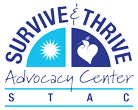In June 2022, the White House Task Force to Address Online Harassment and Abuse (Task Force) launched with a roundtable of experts, including individuals with lived experience, on “increasing support for survivors of online harassment and abuse, expanding research to better understand the impact and scope of the problem, enhancing prevention… and strengthening accountability for offenders and platforms.”
Online harassment and abuse includes the online recruitment and exploitation of individuals for human trafficking as well as associated coercive mechanisms such as the non-consensual distribution of sexually explicit digital content and child sexual abuse materials, cyberstalking and digital surveillance, and gendered disinformation.
Online harassment and abuse can have serious effects on a survivor’s physical and mental health and social relationships. At the Task Force’s launch, Surgeon General Vivek Murthy noted the effects of online abuse, specifically depression, suicide, and anxiety, when technology platforms had too few safeguards: “The ripples that are generated by this trauma can be longlasting but also far reaching. For every individual who is harmed, there are also family members and friends who experience distress and anxiety as they try to care for their loved
one.”



